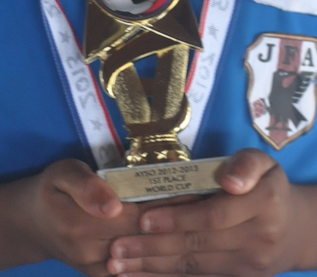Impactfulosity

Fun but Fuzzy
We all crave the satisfaction of seeing the impact of our efforts — it’s fundamental to human desires.
Things get distorted when we focus on precision. Something essential is lost when there is no connection to our common humanity, with love, faith, hope, and charity.
So let's showcase the benefit of our contributions. Numbers help, but there is character in the random, fuzzy expressions of results. Gather enough of those and you see the impact.
What is Effective?
No one gives without thought. We give to people we care about or causes that resonate with us. And naturally, that leads to a question: Did my gift truly make a difference?
This question applies in two areas: people and causes/projects.
When it comes to people:
- Here are some cool examples where the impact was quick and obvious.
@syedsumon97 homeless person share his foods he is big ♥ 🥰🙏😭 #fyp #foryou #foryoupage #AltogetherDifferent #homeless #kind #help #food #poor #respect #love
♬ الصوت الأصلي - hafça🥇
@joker.me1 Social experiment.🥰I recognised a love when a homeless shared his food with me🥰❤️#foryou #foryoupage
♬ original sound - joker.me1
- Note: those show examples of people who are in need, who give of what little they have. I've seen videos where the homeless immediately turn around and share what they got with others in their same situation. Your gift is almost always paid forward!
- It's difficult to see personal impact, especially for those closest to us. It comes out in moments of vulnerability, but these are rare. That's unfortunate. My sister is getting a degree in marriage and family therapy and she said once: "People have lost the skill of being vulnerable with each other and accepting vulnerability with each other without getting defensive." But: "by knowing that other people are also going through hard times and getting through it... it gives us hope." So the good news is that we can show an example by putting more of this on display for others to see. You grow hope by showing your gratitude for any ways you've been helped, now or in the past.
- You may have heard stories or warnings about giving because it causes dependency; one common example is giving to kids and spoiling them. There is a pretty clear set of basic physical needs; spoiling is going far beyond that to placate every want. (Here are a couple of good articles on permissive parenting and undoing spoiling.) Give all needs; don't give all wants.
- You may also have heard warnings that some people will use money for drugs or something else that simply perpetuates their need. There's certainly no requirement to keep giving to someone who squanders it. But if you don't have the time to follow-up on what you've given, take comfort that you helped ease some pain. Their ease may not be how you would choose, but you're also not in their shoes. If you do follow-up... good for you! Let's hope that leads to even more genuine and long-lasting care.
- Writing this made me wonder: is there strength or virtue in NOT seeing the impact of what you've done? 🤷 That's worth pondering from time to time.
When it comes to causes/projects: numbers are good – when they tell stories.
- Give Directly is a great example of rigorous tracking of impact. You can read their findings and their evidence for the hard numbers, but it's also great to see the many individual stories. In fact, many of those in that feed have a longer history, like this recent one about Kache from Kenya who is slowly rebuilding her home.
- My local Bountiful Food Pantry has shown that 50% of people needing assistance come for 2 visits (one month) and that is all they need. 70% come 6 times (three months) and then no longer need help. There are obviously so many stories behind those numbers, with people helped back on their feet.
Enjoy showing impact!
Further Activities
- You can see projects and their history of contributions in Time Safari. Some have a lot of contributions to the project (see "Given To This Idea"). Some have significant contributions from the project to people (see "Benefitted From This Project"). Some have both.
- Journal! Journal daily. This is one of the best habits to focus yourself so that you can see the impact of your choices each day. The effect builds over time – and one benefit is that you have something to review at the year's end, showing you how far you've come.



